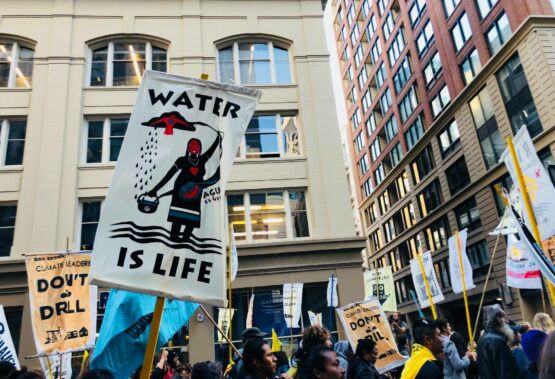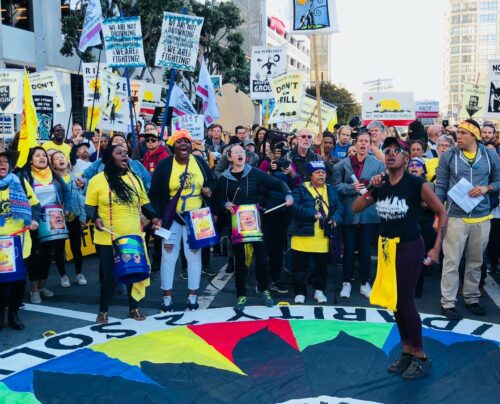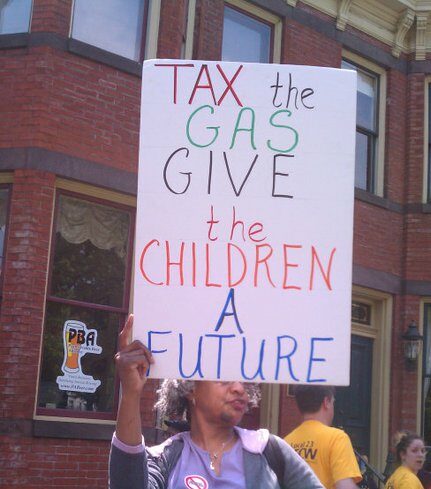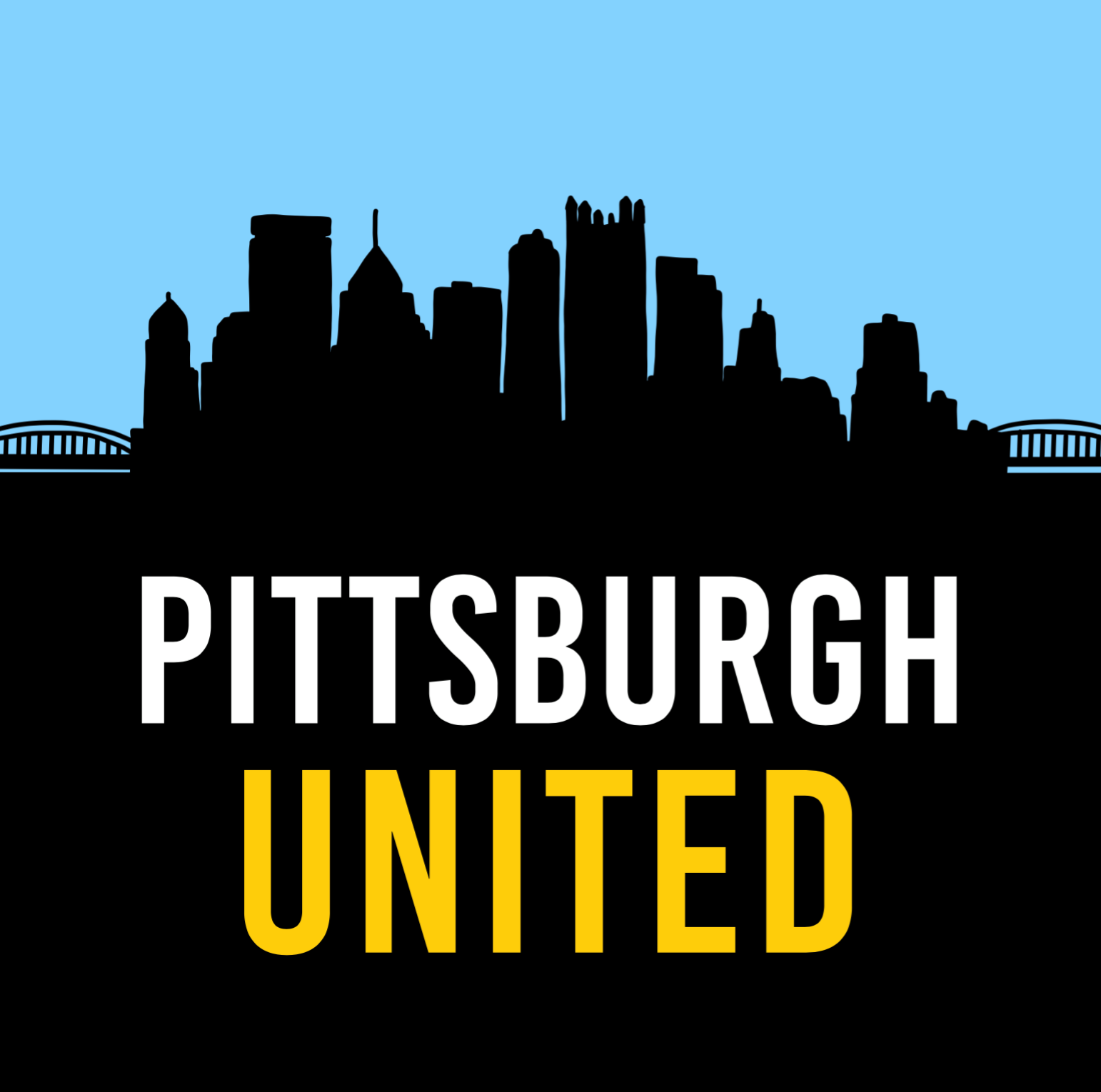Environmental Justice
We want our planet to be inhabitable so that future generations can thrive - everyone deserves affordable water that’s safe to drink, air that’s safe to breathe, and land free from toxic chemicals and pollutants. With a greater frequency and intensity of hurricanes, tornadoes, floods and forest fires, public infrastructure – not only roads and bridges, but also our nation’s care infrastructure – is under unprecedented duress, particularly in communities of color.
We need to invest in safer and more equitable infrastructure networks and focus on procuring long-term community resiliency along with creating the kinds of jobs that will improve our local economy and keep our family and neighbors safe.
When times are tough, we stick together. In pandemics or droughts, after unrest or floods, we know we do better when our communities can thrive and we care for one another, no matter our skin color, zip code, origin, or faith.
Safe, affordable, community controlled water
We all live downstream; no matter who we are, where we live, what we do, or how much money we make; everyone deserves clean, sustainable, and affordable water. Pittsburgh United knows that community control of our water infrastructure is critical to a healthy democracy and a healthy community. We’ve worked for years to ensure safe, affordable, public water in the region, and advocated for adaptive, green solutions that are climate resilient and provide community benefits.

The Our Water Campaign
In 2012, when PWSA turned day-to-day management of our water over to Veolia, a private, for-profit corporation, the result was devastating. Veolia cut corners to reduce costs, which led to lead contamination, a reduction in water inspection staff, and widespread billing errors.
Following the city’s failed partnership with Veolia, Pittsburgh United developed the Our Water Campaign, an effort to mobilize public pressure to prevent any future efforts to privatize our water.
From 2017 to 2019, our coalition organized community members to attend PWSA board meetings, give public comments about residents’ needs, and demand that PWSA be kept public - especially in the face of privatization efforts from Peoples Gas.
The Our Water Campaign’s success in organizing and winning a commitment from elected officials to keep water public exemplified the power and reach of community organizing. The Our Water campaign established a playbook for other municipalities, which have since employed similar tactics in the face of privatization.
Privatization robbed Pittsburgh of safe, affordable drinking water. Our organizing and coalition building brought it back.


Green Infrastructure
Runoff from stormwater continues is a major cause of water pollution and flooding in our region. Runoff carries trash, bacteria, and other pollutants through storm sewers into local waterways. Pittsburgh’s aging sewer system was not built to handle the increasing amounts of severe rain, storms, and flooding caused by climate change. The intense rain can cause everything from basement backups due and overwhelmed sewers to flooding and pollution of our waterways. As we see more rain, our problems will only get worse. We need to act quickly and aggressively to protect residents – particularly those in the most vulnerable communities – from the effects of climate change. We need adaptive, equitable, green solutions and measures that keep waste out of our rivers, ensure safe drinking water, and provide community benefits.
Gray infrastructure — systems of gutters, pipes, and cement tunnels — has historically been used to move stormwater to treatment plants or local bodies of water; in our case, rivers. But gray infrastructure is aging, and its capacity to manage the increasingly large volumes of stormwater we’re experiencing is decreasing. That’s why we need green infrastructure — water infrastructure that relies upon natural processes through rain gardens, living banks, permeable pavement or other permeable surfaces or substrates — to bolster our capacity to manage stormwater. Green infrastructure is a dual solution that both creates jobs and green space and helps solve the environmental and health hazards caused by climate change.
The future of water systems is in our hands: we must collectively share the burden of addressing the effects of climate change. Solutions like green infrastructure allow us to properly invest in our infrastructure and protect low-income residents by making customer assistance programs available. A more equitable and climate resilient city is possible!
Climate Justice
Black, brown, and white, across many lines of differences,, we can come together to take action to heal our climate, earn a good living, and create the country we need: one where everyone is cared for, has the ability to earn a fair return on our work, and has what we need to get and stay healthy. But a handful of politicians have lied to us about the damage to our climate. They want to point fingers, assign blame, and turn us against each other while oil companies profit off polluting our air, land, and water. They want to divide us instead of helping us heat our homes in the winter and breathe easily in the summer.
We need leaders who will direct our public resources to putting people to work and repairing environmental damage of the past, not send billions to the wealthy few and big corporations with tax breaks and tax cuts. We need leadership that bridges across our differences rather than making them deeper. Climate catastrophes are not only about failing infrastructure – they are about leaders failing constituents, placing lives at risk, and using our taxpayer dollars to help large corporations instead of our children and families.
We must take the lessons of our past and reshape our communities, workforce, institutions and regulations for a better future that works for all of us. It’s time to invest in people - workers and communities, not in corporations that sicken us and destroy our environment.

